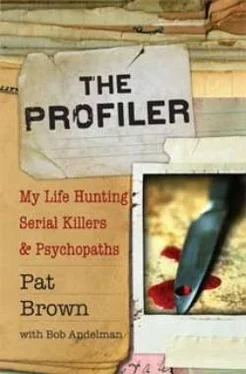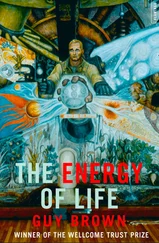The autopsy reported that Sabrina died of ligature strangulation. The medical examiner found no evidence of any kind of bruising to her head, nothing else that would have caused her death, and the police agreed.
But the Oliver family could not believe that Sabrina killed herself.
As Penny Oliver indicated in her e-mail to me, there was a hammer found in the room, and the family believed Uncle Rufus hit Sabrina over the head with it and then hanged her. A rape kit was done, but the actual testing never was performed because the police were certain Sabrina committed suicide. It is wise to at least be sure that the rape kit is completed, so if there comes a time when there is a question that the victim was sexually assaulted, the evidence will be available.
At the funeral home, Penny said she saw a bruise over Sabrina’s eye. The next day, she claimed, it was even bigger, which was impossible, because when you’re dead, you don’t bruise, and bruises that are already on the body don’t get bigger. But there was nothing ever noted in the autopsy report or by the hospital. No one else documented a big abrasion or swelling or anything else on Sabrina, so I was not sure what the family thought they saw. It’s possible they saw some discoloring caused by decomposition, which they mistook for something else.
Penny said, “We believe Rufus committed this crime.”
I said, “Why? Why would he do this?”
When Sabrina died, Penny’s husband, Steve-Sabrina’s stepfather-was also at home. He and Rufus were both there with Sabrina for some time before Penny arrived home from work that night.
The stepfather said he saw Sabrina shortly before she went to bed. For Penny’s belief to be true, Uncle Rufus would have had to rape Sabrina, hit her over the head with the hammer (which the investigators denied seeing in the room), and kill her before Penny got there. By that theory, maybe he raped Sabrina, she screamed, he panicked, and he hanged her.
Because I could see some logic in this, I agreed to take on the case. I wanted to see if there was a possibility that Rufus did these things.
The autopsy report proved nothing of the sort. No hammer hit Sabrina, according to the medical examiner; there was also no evidence of any kind of a trauma to her head.
But Rufus still could have hanged her.
Then I listened to Rufus’s call to 911.
“Please someone get over here, please, hurry, please, please, hurry, she’s not breathing, she’s not breathing, for God’s sake, please.”
Calls to 911 are fascinating. Something traumatic just happened, and these calls record a fresh response from the people involved. The first thing I noticed was that Rufus was hyperventilating so badly he could barely get the words out. He found his niece; he was an absolute wreck. I thought, That’s one fine acting job if you are acting here, buddy, because man, you sound totally, completely, out of your mind distraught. It didn’t sound to me like a cold-blooded psychopath who had raped and hanged his niece. That was one of the most telling things.
But then I learned of the clincher-and this is where normally rational families go into such huge denial over their children’s emotional state and well-being.
Sabrina actually left an incredibly long, detailed, three-page suicide note. In it, she bid good-bye to everyone in her life, and she said how much she loved the people who cared for her. Then she went on to explain why she needed to leave them.
“I was a mistake,” she wrote, “and everyone knows it, or at least I do. I know I’m not wanted here or anywhere else I go to, so I’ll leave, and I’ll have nowhere else to go, so I’ll rot in hell if I have to. For everything I’ve ever done or said to anyone that’s caused them pain, I’m so sorry. I hope you don’t end up like me.”
She went on for three pages, describing how much pain she was in, how things people said to her hurt her deeply.
“Every insult and every comment I’ve ever received has left a deep hole inside my heart. I’m a person who takes everything seriously. I am the mistake you can’t fix. You can’t give me advice. No one seems to understand the emotional stress and pain that I have been going through. I wrote this letter to everyone, all my friends that I have. I didn’t and don’t want you to feel bad for me. Be happy you won’t have to deal with me any more. I’m an emotional person forever.”
This was the tremendously sad suicide note of a girl with incredible teenage angst.
She used the term “Jehovah” quite often, which led me to believe she might have had some association with Jehovah’s Witnesses. There is a beautiful land that Jehovah’s Witnesses believe people will go to when they die, kind of like Heaven, but this is the new world, and that’s a beautiful place to be. We inhabit a hopeless world because of so much drug use and drinking and sex and violence that it’s hard to remain good. Sabrina believed she had to stick close to Jehovah.
After her daughter was dead, Penny decided that her brother Rufus-who tried to tell her it was a suicide-actually wrote the long suicide note.
The poor uncle. Essentially, there was never any problem between the uncle and the niece, because I asked the family that question.
Everyone said the same thing: “No, they got along fine.”
I said, “Was there any suspicious activity?”
And again, the answer was no; he lived there with them and everything was fine. He was just the unfortunate schmuck who found her.
I studied the suicide note that she thought Rufus forged. She sent me another sample of Sabrina’s handwriting, insisting the suicide note was not in Sabrina’s handwriting. And yet when the police and I analyzed it, we both came to the same conclusion: it was exactly the same handwriting. She had a loopy, teen girl’s handwriting style, and she even drew a heart in the letter just like one that she had drawn on her hand. A teenage girl’s thought process is clearly evident in the language and narrative of the note.
At the time, my daughter was the same age as Sabrina, and I, as a profiler, couldn’t even come up with that good a replica of a teenage girl’s suicide note. It would be an astonishing ability for a grown man to write a believable suicide note in the voice and handwriting style of a teenage girl.
On top of that, if someone were to stage a crime, they would not write anything with the level of depth and emotion Sabrina expressed in that note. Generally speaking, most suicide notes that are written by those who kill themselves are fairly short, because it’s hard to write a long one when the foremost thought in your mind is I’ve had it. The world sucks. That would have been a note I might have believed the uncle forged. That might have made sense, because he could have sat down and worked hard to make sure that “the world sucks, I’m out of here, Sabrina” matched her handwriting pretty well. But to actually write a three-page good-bye note, that’s pretty darn difficult.
Uncle Rufus was completely tormented by what happened, and by discovering his niece. He ended up in a mental hospital. The family claimed the reason for that turn of events was because he felt such horrible guilt about killing her. I believe Rufus ended up in a mental hospital because his own sister, Penny, accused him of killing Sabrina. Can you imagine losing your niece and then having your sister say that you raped and murdered her?
Rufus became paranoid after Sabrina’s death, thinking that everybody was out to get him, and it was terribly sad. And this was all because of how difficult it is to believe that your child could commit suicide.
WHEN I PROFILE suicides, I always write back to the family in a gentle way with my conclusions: “I know how much you are suffering from this…” I explain to them how we can’t always know what our children are thinking, how so many of us wouldn’t know the difference between a child exhibiting normal teenage depression and a teen in serious emotional distress who suddenly kills himself the next day. Sometimes teenagers make rash decisions that we can’t see coming. I point out to families that it’s not unusual for them to not know, so they shouldn’t feel guilty that this came out of the blue and blindsided them, that they didn’t necessarily contribute in any way to it. Some people, especially teenagers, don’t necessarily communicate what they’re going through. Most of the teenagers who complain and cry and say they hate everyone and their lives never attempt suicide and get through those years. We can only do so much, try our best to help our children, relatives, and friends, but sometimes they just do what they want to do and it ends up tragically.
Читать дальше












